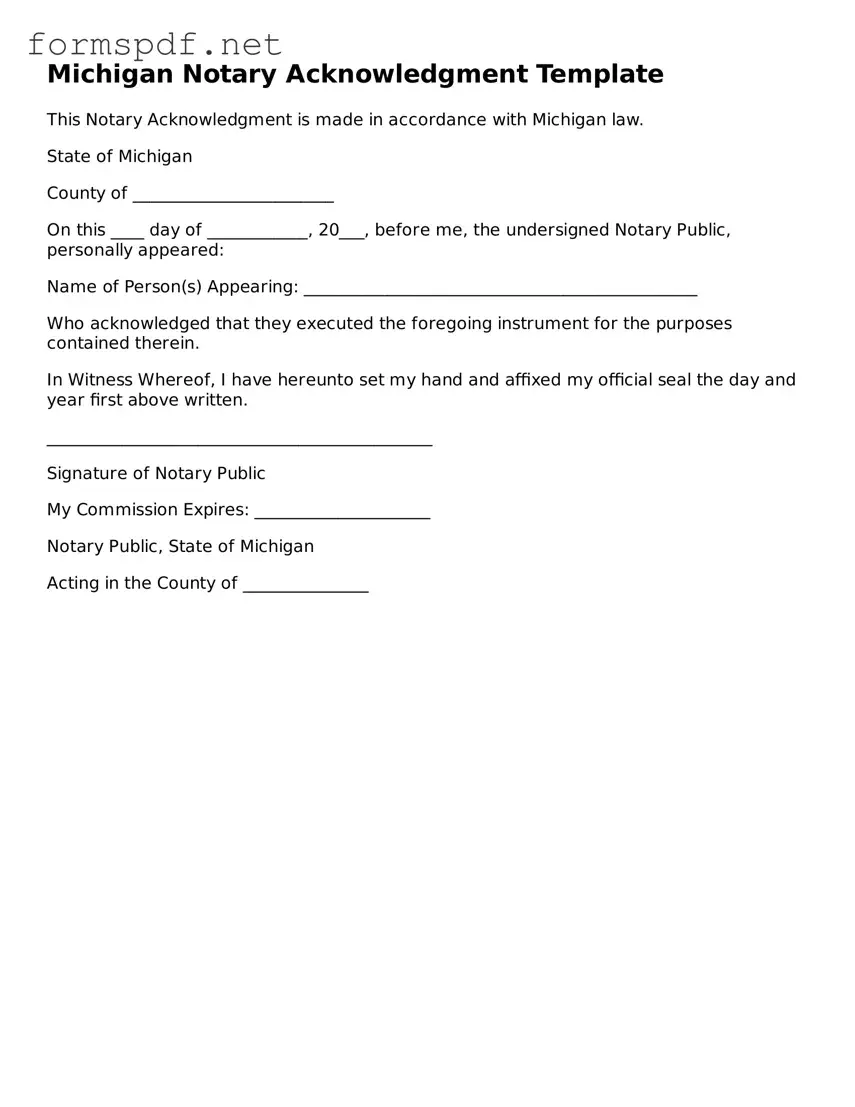Free Notary Acknowledgement Form for Michigan
The Michigan Notary Acknowledgement form is a legal document used to verify the identity of a signer and confirm their willingness to sign a document. This form is essential in ensuring that the signing process is legitimate and compliant with state laws. To get started on your Notary Acknowledgement, click the button below.
Launch Editor Now

Free Notary Acknowledgement Form for Michigan
Launch Editor Now

Launch Editor Now
or
⇓ Notary Acknowledgement PDF
Don’t leave without finishing the form
Finish your Notary Acknowledgement online and download the final version.